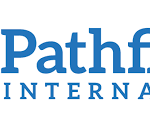Log In
Sign Up

About Us
For 65 years, Pathfinder has supported women, young people, and communities by expanding access to sexual and reproductive health care and opening the door to opportunities to thrive.
Today, Pathfinders live and work in more than 20 countries in Africa, South Asia, and the Middle East, building trusted networks of reproductive health services for millions of people around the world every year. We are steadfast in our conviction that all people, regardless of where they live, have the right to decide whether and when to have children, to exist free from fear and stigma, and to lead the lives they choose.
Our mission is big and bold, and we are dedicated to pushing ourselves and our organization to continue forging new pathways for access to sexual and reproductive health wherever the need is greatest. We are proud of our many successes, but we know it’s not possible to fully embrace the bright future we envision without understanding and reckoning with our past.
Originally founded as the Pathfinder Fund in 1957 by Clarence Gamble, the organization served as a vehicle to continue his work on expanding access to new, important family planning tools. But it is well documented that Gamble’s involvement in the practice of eugenics persisted through the first half of the twentieth century, coinciding with the founding of Pathfinder. Into the 1960s, racially biased and unscientific beliefs clearly influenced his work in the US and in the Global South and were manifest in his efforts to limit or reduce birthrates in certain communities, regardless of whether or not the people in those communities expressed consent with his methods. Though Gamble died in 1966, the influence of his beliefs could be traced in Pathfinder’s work into the 1970s, generally under the banner of “population control,” a euphemism adopted by governments and family planning organizations at the time.
We are working to understand our history—and the broader history of the family planning movement—more deeply, to interrogate how racism, white supremacist ideology, eugenics, and population control influenced early activities in our organization and our movement. We have sought to understand the views and actions of early movement leaders like Gamble, Margaret Sanger, and others more fully so that we can determine how best to address this legacy going forward. We now have a better, clearer understanding of our history that enables us to lead the way into the future with a people-centered approach and a gender justice lens—helping to build a world where people everywhere don’t just survive, but thrive. We are holding ourselves accountable to reflect on and reckon with our history—to reconcile it with the bold future we envision for our organization and the people we serve.
The courage and dedication shown by all Pathfinders and our local partners have made huge contributions to ensuring that everyone, regardless of where they live, has the ability and the opportunity to make their own decisions about their bodies and their futures.
Looking to the future, it is clear that the roles of women and young people have never been more essential. They are on the front lines of the greatest global challenges. At Pathfinder, we are meeting the challenge of the moment: firm in our convictions, dedicated to our mission and driven by our country-led leadership and commitment to trusted partners. We are constantly adjusting and adapting to our changing world. Meeting the needs of the people we serve, building trusted networks of critical services that support millions of people around the world – year after year.
Related
Company Overview
-
Company Size: +1000
